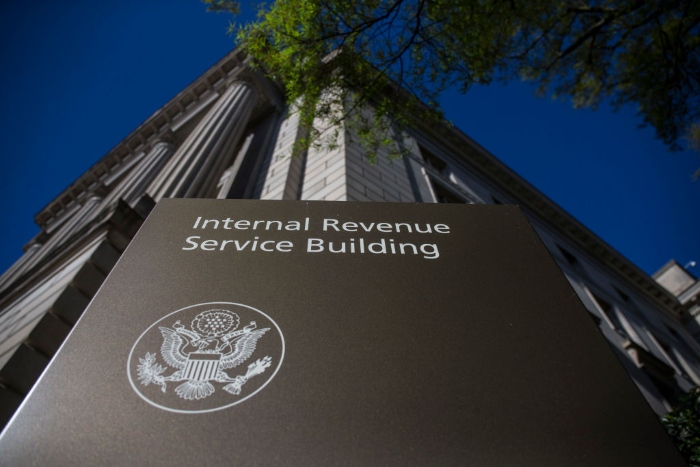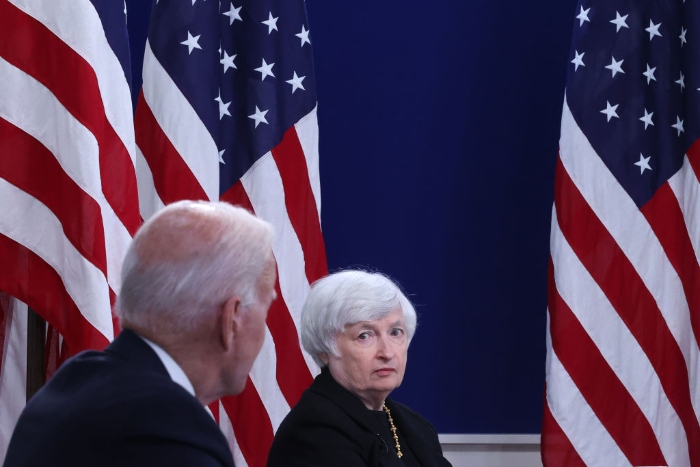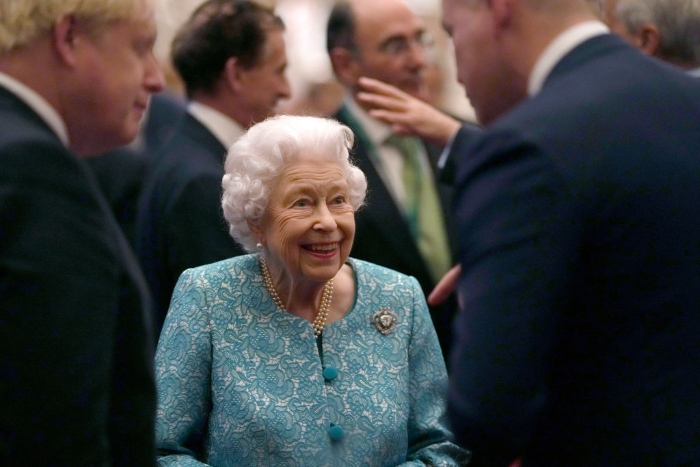| | |  | BY RENUKA RAYASAM | With help from Myah Ward
| 
The Internal Revenue Service building | Zach Gibson/Getty Images | DEATH AND TAX AVOIDANCE — The fine print of the billionaire tax being proposed by Senate Finance Chair Ron Wyden (D-Ore.) has yet to be released, but Robert Willens is already getting calls about how to evade it. Not from one of the 700 or so people in the country with more than $1 billion in assets who would be affected by the tax, he says, but from some of the people who handle such matters for them. Willens is Wall Street’s go-to tax guy, the person hedge fund managers turn to for advice. He is said to charge clients $75,000 a year. Nightly called him to see how he plans to counsel billionaire clients about how to avoid paying Wyden’s potential new tax. He said there’s not much he can tell them now: Tax avoidance is usually in the loopholes and gray areas and technicalities of such laws. But, he added, if Democrats manage to pass the tax and it survives an expected constitutional challenge, it would be hard for his ultra wealthy clients to finagle their way out of it. “This is going to be perhaps the most difficult tax we have ever seen in terms of trying to plan to minimize it,” said Willens, a former managing director at Lehman Brothers who has been working on taxes since the early 1970s. “I believe this is going to be the biggest challenge we have ever had.” Under current law, if someone owns a business or a piece of art or a property or a spaceship or NFT that rises in value, they don’t have to pay taxes on those gains until they sell it. You could argue that those unrealized gains don’t put any more money in their bank accounts, but wealthy people often borrow money against the value of their assets to buy other fun stuff. They don’t have to pay taxes on those loans because they aren’t income. Borrowing against unrealized gains from assets is partly how many very wealthy people end up paying a smaller share of their money in taxes than most Americans. A ProPublica investigation dubbed this strategy, which concludes with a tax-free transfer to heirs, “Buy, Borrow, Die.” The proposed Wyden tax would require billionaires and people who make more than $100 million a year for three consecutive years to pay taxes on the increased value of their assets, whether they have sold them or not. Willens said he wants to know how the IRS would put a price on certain holdings. Stock gains are easy to value, but the wealthy own a lot of hard to appraise assets, like art and real estate. Billionaires are likely to try to massage the value of those assets and fight back against the appraised value come tax time. Willens is also curious whether a billionaire family would be able to spread its assets among its individual members, and then prevent any one of them from reaching that billionaire status. He suspects that Congress would make it hard to “peel off assets and place them in the hands of family members and other related entities.” He said, “I’m pretty sure that might not be available.” He does, however, think that Congress wouldn’t require billionaires to pay the entirety of the first year’s tax in one year. A grace period would allow clients to spread out their initial tax obligations over a few years. Congress has done that before, he said, and it seems likely it would do it again. Willens said that the Supreme Court might be the best tax-avoidance strategy for the billionaire class. A legal challenge over whether the tax is covered by the income taxes permitted under the 16th amendment is a certainty. One move that won’t work: leaving the country — or renouncing American citizenship. “You can be absolutely, 100 percent sure that there is going to be some sort of exit tax imposed,” Willens said. “I don’t see that as much of a strategy.” Welcome to POLITICO Nightly. Reach out with news, tips and ideas at nightly@politico.com. Or contact tonight’s author at rrayasam@politico.com or on Twitter at @RenuRayasam.
| | | 
Treasury Secretary Janet Yellen listens to President Joe Biden during a hybrid meeting with corporate chief executives and members of his cabinet in the Eisenhower Executive Office Building. | Chip Somodevilla/Getty Images | THE PRICE IS WRONG — The debate over whether rising grocery and gas prices are a temporary pandemic side effect or a long-lasting problem caused by government spending has escalated. On two different sides: Former Obama administration economic adviser Larry Summers and Treasury Secretary Janet Yellen. Nightly’s Myah Ward talked with Austan Goolsbee, who chaired the Council of Economic Advisers during Obama’s presidency, about how to tell whether Yellen, who expects inflation to return to the acceptable 2 percent range by next year, or Summers, who’s warning the country faces a risk of out-of-control inflation, has the better argument. This conversation has been edited. How will we know if Summers is right? The problem with a debate over whether inflation is sustained or temporary is that you only find out if it’s sustained after a year. There are some cues that we can look for. If it is caused by general overheating, overall we would expect that to be broad-based inflation. And it is caused from supply constraints in specific sectors, that would tend to be the price increases in the pandemic affected areas. That doesn’t have to be 100 percent true. But until we get to next fall, that’s the kind of evidence people are going to be looking at. Are there specific sectors you’re watching? There are supply chain things that are clearly documented to the spread of the virus, like computer chips. The workers can’t go to the factories. A thing that’s very odd about this downturn and this recovery: Normally, demand for services is the majority of what we spend our money on. And services are not very cyclical. What happens is people stop buying physical goods, especially big durables. Houses and stuff like that. And this downturn was the opposite. Demand for durable goods went up. Demand for cars went up. Demand for houses, way up. Are consumption patterns going to go back to what they were before? Where the majority are services? Once services come back online, presuming we can get control of the spread of the virus, how rapidly are people going to shift back to spending money on services? Because all the pandemic shortages coming from the supply chain, that’s all concentrated on physical goods and stuff coming through the ports. Do you fall into one camp of the debate? How concerned are you about lasting inflation? My own bias is that the virus drives everything. I’ve been saying that from the beginning, and I still think that’s true. So that puts me more on the side of Team Temporary. This is a worldwide phenomenon. In the summer, you could look at the map and there’s backlogged ports all around the world. That makes you think it’s not really a thing that’s dominantly caused by U.S. policy. It’s a thing that’s being caused by the whole world trying to come back at the same time, and the worldwide supply chain is not capable of delivering that quickly. Even if Washington policy is not what’s causing it, it’s still going to be a bumpy ride and people are going to be upset. If the price of gas is high, people are always upset. In a way it doesn’t matter in the moment, or in the polling, whether it’s temporary. That may matter in 2022 or ’23 or ’24, but for the next six months, people are just going to be upset about this.
| |
| | JOIN WEDNESDAY FOR A PLAYBOOK INTERVIEW WITH SEN. MARK WARNER : President Joe Biden's ambitious domestic agenda is in political limbo as the White House tries to reach a deal among congressional Democrats to vote on a $1.2 trillion bipartisan infrastructure bill. Join Playbook co-author Ryan Lizza for a conversation with Sen. Mark Warner (D-Va.), who helped write the bipartisan infrastructure bill, to discuss the fate of Biden's legislative agenda, including the more comprehensive reconciliation package as well as Virginia's tight gubernatorial race and what its outcome could mean for the Democratic Party. REGISTER HERE. | | | | | | | — Dems confront flagging momentum for $1T-plus deal: The White House hosted last-minute meetings with influential groups of House Democrats today as party leaders in both chambers raced to resolve the disagreements still snarling President Joe Biden’s domestic agenda . Even as they get closer to agreement with Senate centrist holdouts on a social spending megabill, Democrats face hangups over major issues that include taxes, Medicare and Medicaid expansion, and paid leave. — FDA panel endorses Covid shots for kids 5 to 11: The Food and Drug Administration's independent vaccine advisers voted in favor of authorizing Pfizer and BioNTech's Covid-19 vaccine for children 5 to 11. Panel members voted 17-0 to recommend the shot, with one abstention. — Birx: Trump adviser squeezed out health officials to downplay seriousness of pandemic: As Covid-19 surged last winter, the Trump White House was torn between competing factions on how to manage the pandemic, including whether to let the virus spread unchecked to reach herd immunity, former coronavirus response coordinator Deborah Birx told congressional investigators. — Justice Department announces 150 arrests from dark web drug crackdown: Federal law enforcement officials announced today that a wide-ranging, global illicit drug crackdown yielded 150 arrests and the seizure of more than $31.6 million in cash and virtual currencies. The roughly 10-month initiative — dubbed Operation Dark HunTOR, after the encrypted internet tool — was conducted in partnership with international counterparts and also yielded 234 kilograms of seized drugs. Of those arrested, 65 were in the United States and the rest were in a handful of European countries including Germany, France and the United Kingdom. — FCC votes to halt China Telecom operations within U.S.: FCC commissioners today unanimously voted to nix the agency’s domestic and global authorizations for China Telecom Americas — moves that will curb the company’s ability to operate within the U.S. The decision carries through on the scrutiny begun last year into the Chinese government-owned company.
| | | 
Britain's Queen Elizabeth II and Prime Minister Boris Johnson greet guests during a reception at Windsor Castle. | Alastair Grant - Pool/Getty Images | NO QUEEN FOR COP26 — Queen Elizabeth II will not attend the U.K.-hosted COP26 climate summit, Buckingham Palace announced today . The U.K. monarch — who had to cancel an engagement in Northern Ireland last week on medical grounds — had been expected to attend the United Nations gathering, which kicks off in Glasgow this weekend. In a statement, Buckingham Palace said that while the queen had been “undertaking light duties at Windsor Castle,” she had “regretfully decided that she will no longer travel to Glasgow to attend the evening reception of Cop26 on Monday, November 1.” The statement added, “Her Majesty is disappointed not to attend the reception but will deliver an address to the assembled delegates via a recorded video message.” The queen was recorded appearing to criticize world leaders for climate inaction earlier this month, reportedly saying of COP26: “We only know about people who are not coming … It’s really irritating when they talk, but they don’t do.”
| |
| | BECOME A GLOBAL INSIDER: The world is more connected than ever. It has never been more essential to identify, unpack and analyze important news, trends and decisions shaping our future — and we’ve got you covered! Every Monday, Wednesday and Friday, Global Insider author Ryan Heath navigates the global news maze and connects you to power players and events changing our world. Don’t miss out on this influential global community. Subscribe now. | | | | | | | | |
33 million The number of doses of Moderna’s Covid vaccine the United States will defer delivery of so that they can be purchased by the African Union, the White House announced today. “This deal will get the continent Moderna doses that have been long-awaited and in high demand,” said White House press secretary Jen Psaki. |
| | | THE DEADLY BED SHORTAGE — The pandemic has killed more than 700,000 Americans, but it has indirectly killed many more: all the people with treatable health emergencies who were unable to obtain care at hospitals overwhelmed with Covid patients, Mark A. Rothstein of the University of Louisville writes in The Agenda. It’s easy to point to the pandemic — and all the attendant controversies, from masking to vaccines to lack of preparedness — as the cause of all these ancillary deaths. But Covid-19 didn’t create this particular crisis, it merely revealed it. The underlying problem is the decades-long decline in the number of hospital beds and the federal government’s failure to address the issue. Had public health officials heeded earlier warnings, many lives could have been saved. Between 1975 and 2019, the total number of hospital beds in the United States plunged from 1.5 million to 919,000 due to consolidation and the closure of some small and rural hospitals. Excluding neonatal and pediatric ICUs, there were about 80,000 ICU beds in 2021. Now, in some states hit hard by Covid, over 90 percent of ICU beds have been filled. Overall, Covid patients made up only about 27 percent of ICU patients, but this surge was enough to overwhelm the system in many places.
| |
|
| | Follow us on Twitter | | | FOLLOW US
|
| |

No comments:
Post a Comment